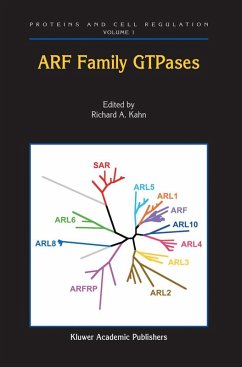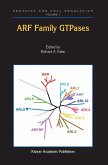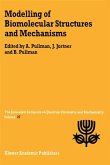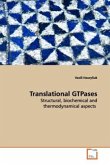For the first time experts in the area of signalling research with a focus on the ARF family have contributed to the production of a title devoted to ARF biology. A comprehensive phylogenetic analysis of the ARF family, tables of the ARF GEFs and ARF GAPs, and more than a dozen chapters describing them in detail are provided. The impact of the ARF proteins on widely diverse aspects of cell biology and cell signalling can be clearly seen from the activities described; including membrane traffic, lipid metabolism, receptor desensitization, mouse development, microtubule dynamics, and bacterial pathogenesis. Anyone interested in understanding the complexities of cell signalling and the integration of signalling networks will benefit from this volume.
From the reviews: "A journey into a deeper understanding of the diversity of cellular controls exerted by the ARF family. The writing is so clear and well developed ... it will allow newcomers in the area to dive into a dynamic area of molecular and cellular science. ... the reader is treated to a wealth of discussion and critique on how ARFs modulate processes such as membrane fusion, vesicular transport, cell migration and receptor activity. This is an outstanding text for everyone with an interest in cell biology." (M. Thompson, Cell Biochemistry and Function, Vol. 23 (4), 2005)








